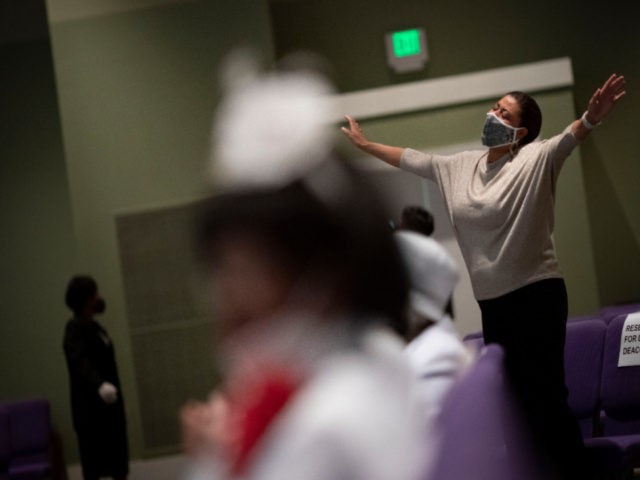ROME — Pope Francis insisted Monday that health of the soul is as important as physical health, urging authorities to respect religious freedom in their efforts to curb the spread of the coronavirus.
The need to halt the spread of the virus has had implications “for a number of fundamental freedoms, including religious freedom, restricting public worship and the educational and charitable activities of faith communities,” the pope noted in an address to members of the Diplomatic Corps accredited to the Holy See.
In dealing with the coronavirus pandemic, many countries have divided activities into essential and nonessential, worship of God often falling into the latter category, a practice Francis decried.
“It must be recognized, however, that religion is a fundamental aspect of the human person and of society, and cannot be eliminated,” the pontiff said. “Even as we seek ways to protect human lives from the spread of the virus, we cannot view the spiritual and moral dimension of the human person as less important than physical health.”
The pope also took advantage of the address to clarify the status of religious worship as a derivative of the fundamental right of religious freedom and not a mere extension or specification of another right.
“Freedom of worship, furthermore, is not a corollary of the freedom of assembly,” he asserted. “It is in essence derived from the right to freedom of religion, which is the primary and fundamental human right.”
“This right must therefore be respected, protected and defended by civil authorities, like the right to bodily and physical health,” he insisted. “For that matter, sound care of the body can never ignore care of the soul.”
The various crises humanity is currently facing “cannot be overcome, unless we safeguard the transcendent dignity of each human person, created in the image and likeness of God,” he concluded.
The pope’s words followed on the heels of a decision by the U.S. Supreme Court last Friday overturning a California ban on indoor church services.
In the opinion for the Court’s 6-3 majority in the case of South Bay United Pentecostal Church v. Newsom, Chief Justice John Roberts wrote that the “federal courts owe significant deference” to public health officials, but there are limits.
“The state’s present determination — that the maximum number of adherents who can safely worship in the most cavernous cathedral is zero — appears to reflect not expertise or discretion, but instead insufficient appreciation or consideration of the interests at stake,” Roberts wrote.
For his part, Justice Neil Gorsuch noted that since the arrival of the coronavirus, “California has openly imposed more stringent regulations on religious institutions than on many businesses.”
“When a State so obviously targets religion for differential treatment, our job becomes that much clearer,” Gorsuch wrote. “As the Ninth Circuit recognized, regulations like these violate the First Amendment unless the State can show they are the least restrictive means of achieving a compelling government interest.”
“Drafting narrowly tailored regulations can be difficult,” Gorsuch concludes. “But if Hollywood may host a studio audience or film a singing competition while not a single soul may enter California’s churches, synagogues, and mosques, something has gone seriously awry.”

COMMENTS
Please let us know if you're having issues with commenting.